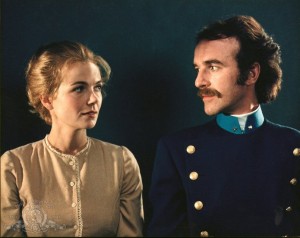While certainly I respect the monks for their willingness to forgo many material comforts and distractions in pursuit of God, there is really something of the Gnostic about the Carthusians–the cry of the soul beleaguered by too much fleshiness, wishing to rise upward into the world of the spirit.
There’s just one problem with this: Jesus came down. He sunk deep into the messy matter of fallen creation, of earth-bound body, took it on, experienced death within it, and rose again in bodily form. Christians are promised a bodily resurrection (I wrote more on this here), a new heavens and new earth. God is not about annihilating matter, but redeeming it.
In the almost Buddhist-like attempt to be absorbed into nothingness and death, the Carthusians seem to largely renounce the way God has redeemed and is redeeming the body. The hair shirt, the strict fasting, even the self-flagellation, all of it reeks of a rejection of the body which God has created. The strict silence and isolation from community (whether that of other monks or that of family and friends) rejects not just one’s own body but the created bodies of other people. While people can be difficult, the truth is that we are sanctified side by side, not in isolation (although, certainly, periods of isolation can be beneficial to our growth).
No, any spirituality that wants to abandon the body rather than redeem it has no value to me whatsoever.
* * *
 Babette’s Feast shows us another way. It tells the story of two pious sisters, Martine (Birgitte Federspiel) and Filippa (Bodil Kjer) (named for Martin Luther and Philip Melancthon), the daughters of a pastor of a small Christian sect. The young women are extremely beautiful and each draw the eye of suitors, but the father seems to have a focus on the rise upward into the world of the spirit. (The religious sect’s favorite hymn seems to be one about heaven, “Jerusalem, My Heart’s True Home.”) Earthly pleasure has no merit and will probably, in fact, bring distraction or evil. Consequently, the suitors are discouraged away. Food is simple and tasteless. Clothing is simple. The home is simple, in a small, remote village. Life is about worship and service.
Babette’s Feast shows us another way. It tells the story of two pious sisters, Martine (Birgitte Federspiel) and Filippa (Bodil Kjer) (named for Martin Luther and Philip Melancthon), the daughters of a pastor of a small Christian sect. The young women are extremely beautiful and each draw the eye of suitors, but the father seems to have a focus on the rise upward into the world of the spirit. (The religious sect’s favorite hymn seems to be one about heaven, “Jerusalem, My Heart’s True Home.”) Earthly pleasure has no merit and will probably, in fact, bring distraction or evil. Consequently, the suitors are discouraged away. Food is simple and tasteless. Clothing is simple. The home is simple, in a small, remote village. Life is about worship and service.
Nevertheless, the sect is not caricatured; despite their flaws, we see their constant acts of mercy and service (in this way, they are quite different from the Carthusians who seem to be focused inward rather than outward). There is a deep kindness to the sisters and a quiet strength. All is well and at peace.
Then, one night in a thunderstorm, the French-born Babette (Stéphane Audran), stumbles to their door, having run away from violence in her native land. She is exhausted and afraid and promises to work for the sisters for free, as a maid and cook. The sisters are hesitant to have such a luxury as a servant, but they can see that Babette needs help, so they agree to take her on. Fourteen years go by, Babette serving faithfully all that time, until one day she receives word that she has won a large sum of money in the French lottery. The sisters are sure that Babette will leave them now, no longer needing their hospitality. As the 100th birthday of their beloved father (now deceased) approaches, they plan to celebrate in humble form. But Babette has another plan. Having been hiding her light under a bushel until now, she asks the sisters if she might prepare a classical French feast for the celebration. The sisters, again, are very hesitant to accept this extravagance, but since Babette has never asked for anything and since they assume she will soon be gone, they assent.
At the same time, the religious sect, once strong and full of brotherly love, has been bothered of late by petty disagreements, the burden of old sins of the past, and general harsh attitudes. Bitterness, guilt, and unforgiveness are running rampant. The sisters are dismayed and long to reunite the community once again in the spirit of their father, who taught them so well.












